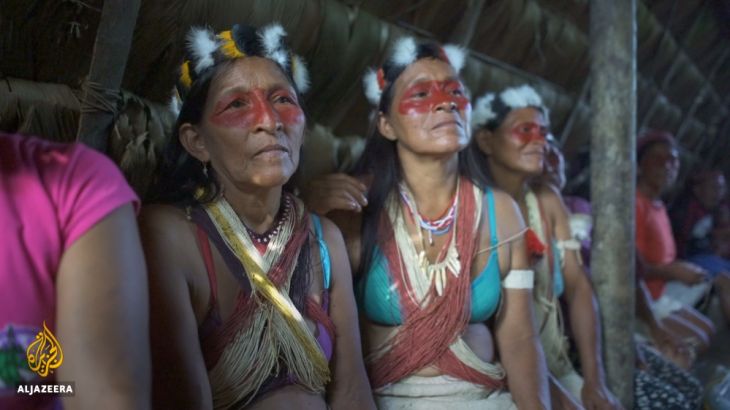The Amazonian tribe defending their land with technology
‘Today, we defend our land with this map. Before we killed with spears. Things are different now.’

While the Amazonian basin is most often touted for its biodiversity, there are also hundreds of indigenous tribes that live in the rainforest. Many of these tribes are under direct threat of displacement by resource extraction and deforestation. To this day, 70 percent of the Ecuadorian Amazon has been leased to oil companies, and plans have been set to auction off more land.
One of these areas includes a large swath of Waorani territory, labelled Block 22 by the Ecuadorian government. The territory is home to 18 roadless Waorani communities, including hundreds of medicinal plants, hunting routes, cemeteries, battlegrounds, watering holes, and a huge diversity of flora and fauna.
Keep reading
list of 4 itemsRussia jails hypersonic missile scientist for 14 years for treason
Are seed-sowing drones the answer to global deforestation?
Rare deep-sea squid filmed by scientists
Four years ago, the Waorani decided that they needed to map their territory as a means not only to prove their rightful ownership of the land but also to document the rich biodiversity of their territory and the wisdom of Waorani elders for future generations. Over four years, the Waorani used hi-tech GPS technology, camera traps, and drones to map out 180,000 hectares of their territory. The maps include almost 10,000 GPS points.
Oswando Nenquimo, a native to one of the communities in Block 22, has dedicated himself fully to the project. He travels between the 52 Waorani communities, teaching GPS techniques and facilitating the mapping process. Just like most of the population, Oswando is adamant that the story of Waorani land be told by its own people. As the threat of deforestation and potential displacement continues, Oswando and the Waorani people plan to continue mapping as it is an important tool to fight natural resource extraction in their territory.
In November, the Ecuadorian government paused their current plans to auction off Block 22, but the fight is far from over. In 2019, The Waorani plan to file a lawsuit against the Ecuadorian government, which they hope will help guarantee the continued protection of their land.
Director: Julia Muldavin
Assistant camera: Joel Heim
Logistics: Alianza Ceibo
Translator: Nemonte Nenquimo
Executive producer: Andrew Phillips
Additional footage thanks to Amazon Frontlines